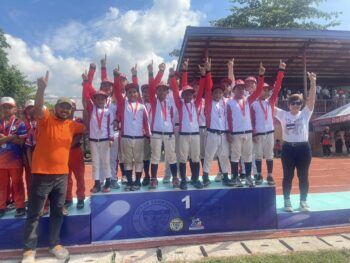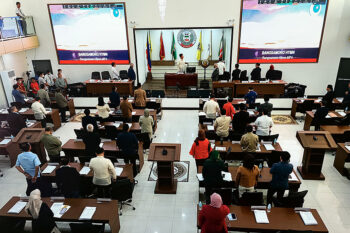MELBOURNE (MindaNews / 5 Jan) – The Constitutional Convention elected for drafting the 1935 Constitution was overtly partial to the American constitutional structure. Hence, the decision to adopt a unitary form of government instead of a federal arrangement akin to the United States has been peculiar.
Of course, the adoption of a unitary structure for the new independent republic in 1935 was basically part of a broader scheme being instigated by Filipino leaders at that time. Indeed, this deviation was purposely designed to establish an extremely strong executive branch. Sadly, this move has given rise to a constitutional order that allows governance of the country to be overly reliant on the very person residing in Malacañang Palace.
The bitter irony here is that those terrible years under the Marcos dictatorship should have jolted the collective heads of the 1986 Constitutional Commission to change course and avoid the folly of giving too much power to a single human being. And yet the 1987 Constitution still did exactly that.
Consider first Article VII, Section 1 on the Executive Department which states that, “The executive power shall be vested in the President of the Philippines.” Then read this in conjunction with Section 17 which provides that, “The President shall have control of all the executive departments, bureaus, and offices. He shall ensure that the laws be faithfully executed.”
For contrast, let us look at South Korea’s executive structure in its charter. Article 66 (4) of the Constitution of the Republic of Korea explicitly provides that “Executive power shall be vested in the Executive Branch headed by the President.” The other members of the Executive Branch are the Prime Minister (see Article 86) and the Supreme Council (see Article 88).
The most notable difference in the South Korean model is that executive power is given to an institution and not to a person. Note that it is vested in the “Executive Branch” whereas in our case, it is vested in the “President of the Philippines”.
The eminence of the Chief Executive in the constitutional order of the Philippines has thus given rise to the Doctrine of Qualified Political Agency or the “alter-ego of the President” principle. This legal concept is defined by the Supreme Court in Carpio vs. Executive Secretary, G.R. No. 96409 (February 14, 1992) as follows:
“Under this doctrine, which recognizes the establishment of a single executive, all executive and administrative organizations are adjuncts of the Executive Department, the heads of the various executive departments are assistants and agents of the Chief Executive, and, except in cases where the Chief Executive is required by the Constitution or law to act in person or the exigencies of the situation demand that he act personally, the multifarious executive and administrative functions of the Chief Executive are performed by and through the executive departments, and the acts of the Secretaries of such departments, performed and promulgated in the regular course of business, are, unless disapproved or reprobated by the Chief Executive presumptively the acts of the Chief Executive.”
From this notion of a “single executive” evolved the “pleasuring the President” dogma, which fundamentally means that presidential appointees in the executive branch (particularly Department Secretaries) hold their posts at the complete sufferance of their boss. This legal principle has become a chronically abused excuse to cling on a little bit more to one’s office. In most cases, much to the displeasure of the public.
It can certainly be argued that this practice contradicts the republican and democratic principles the Philippines ascribes to, specifically that government authority emanates from the people.
Once these officials assume their executive posts, the public expects full devotion to the constituency of their mandate and no longer to the person who extended their appointment.
Accordingly, it is only reasonable, for example, to expect from the Secretary of the DILG that he will champion the autonomy of local governments. Unfortunately, experience has instead shown that past DILG secretaries are more adept at devising schemes to utilize local leaders to serve the interests of the president.
However, the most objectionable aspect of this “privilege” within the executive branch is that it allows cabinet secretaries and other officials of similar stature, indeed the very people tasked to manage public interest portfolios, to deflect demands of accountability.
By allowing them to assert the prerogative of pleasuring the President first and foremost, they are in effect relieved of the obligation to justify their actions (or inaction) to the people. This is of course an absolute travesty because a public office is a public trust. Meaning, all public officials, including the President, serve at our pleasure above all else!
There is without doubt an urgent need to recalibrate attitudes about executive power. Obviously, there is no denying that Malacañang’s strong influence in all matters of government is the very life-source of political patronage. Patronage of course, is the very lifeblood of political dynasties.
And the unabated reign of dynastic politicians is the very evil that sustains graft and corruption in our political system. And every Filipino knows from personal experience that graft and corruption in government is the biggest bane in our country’s development.
A bitter fact of life we must bear in mind as we commence with the charter change process.
[MindaViews is the opinion section of MindaNews. Atty. Michael Henry Ll. Yusingco is a practicing lawyer. He is presently completing a Masters of Law and Development in Melbourne Law School. He recently published a book entitled, Rethinking the Bangsamoro Perspective.]







